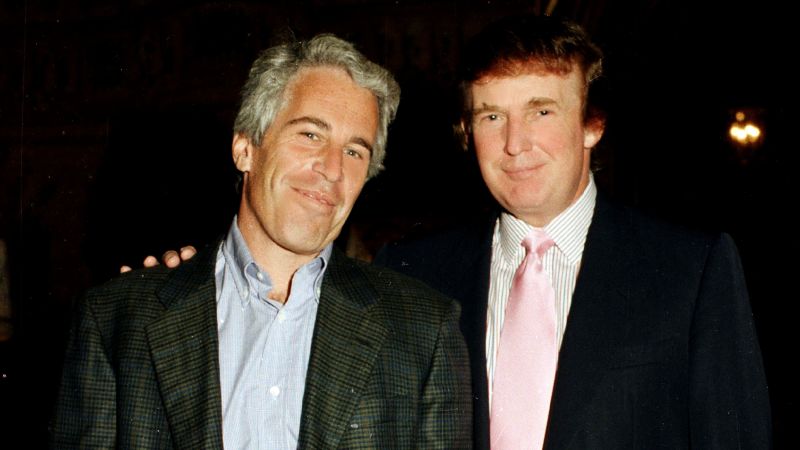Trump Administration’s Stance on Epstein: A Shift from Conspiracy to Closure
Introduction: The Epstein Controversy Revisited
In recent years, the Jeffrey Epstein case has remained a focal point of public intrigue and speculation, particularly regarding the alleged "client list" that some believe could implicate powerful figures. In 2021, JD Vance, now a prominent member of the Trump administration, voiced concerns about the government’s handling of Epstein’s case, suggesting that a hidden list of clients existed. However, the current administration has taken a starkly different stance, asserting that such a list does not exist and that Epstein’s death was indeed a suicide.
Vance’s Initial Accusations
JD Vance, during his earlier criticisms, stated, “If you’re a journalist and you’re not asking questions about this case, you should be ashamed of yourself.” His remarks highlighted the growing public skepticism surrounding Epstein’s death and the alleged cover-up involving high-profile individuals. Today, questions surrounding the case have only intensified, fueled by the administration’s contradictory messaging.
The Administration’s Current Position
Despite Vance’s earlier claims, the Trump administration has now dismissed the existence of any "Epstein files," with the Justice Department confirming that Epstein’s death was a suicide and that no client list will be released. This shift has led to accusations of hypocrisy, especially as many in the administration previously suggested that significant revelations were imminent.
Seeding Suspicion: A Strategy of Distraction
While the administration insists there is no conspiracy, it has inadvertently fostered an environment of suspicion among its supporters. The narrative that Epstein’s case is part of a broader cover-up has gained traction, particularly among the administration’s base. This raises questions about the motivations behind the sudden dismissal of the case’s significance.
Trump’s Dismissive Remarks
In a recent statement, Trump questioned, “Are you still talking about Jeffrey Epstein!?” He further downplayed the issue, stating, “Let’s not waste time and energy on Jeffrey Epstein, somebody that nobody cares about.” This dismissal contrasts sharply with the fervor with which his administration previously approached the Epstein saga.
The Irony of Past Statements
The current administration’s insistence that Epstein’s case is no longer relevant stands in stark contrast to the earlier claims made by its members. Figures like Kash Patel and Dan Bongino, who once emphasized the importance of uncovering the truth, now echo the administration’s narrative that there is nothing to see here.
The Question of Accountability
This raises a critical question: Are those in power admitting they were wrong in their earlier assertions? Bongino’s recent comments suggest a reluctance to confront the implications of their past statements, as he noted, “I’m not paid for my opinions anymore. I work for the taxpayer now. I’m paid on evidence.”
The Call for Transparency
Despite the administration’s claims of closure, many still demand transparency regarding Epstein’s connections and the potential implications for powerful individuals, including Trump himself. The former president’s past associations with Epstein, including his comments about Epstein being a “terrific guy,” have not been forgotten.
The Unanswered Questions
As the administration moves to close the book on the Epstein case, many questions remain unanswered. Why has the administration shifted its narrative? What happened to the promised disclosures? The lack of clarity surrounding these issues only fuels further speculation.
Conclusion: The Need for Clarity
The Epstein case is not merely a historical footnote; it involves serious allegations of sex trafficking and abuse that demand thorough investigation. As the Trump administration continues to navigate this complex issue, the public deserves clear answers and transparency. The apparent contradictions in their messaging only serve to deepen the mystery surrounding Epstein’s legacy and the powerful individuals connected to him.
In a world where accountability is paramount, the administration’s reluctance to address these concerns raises significant questions about its commitment to justice and transparency.


